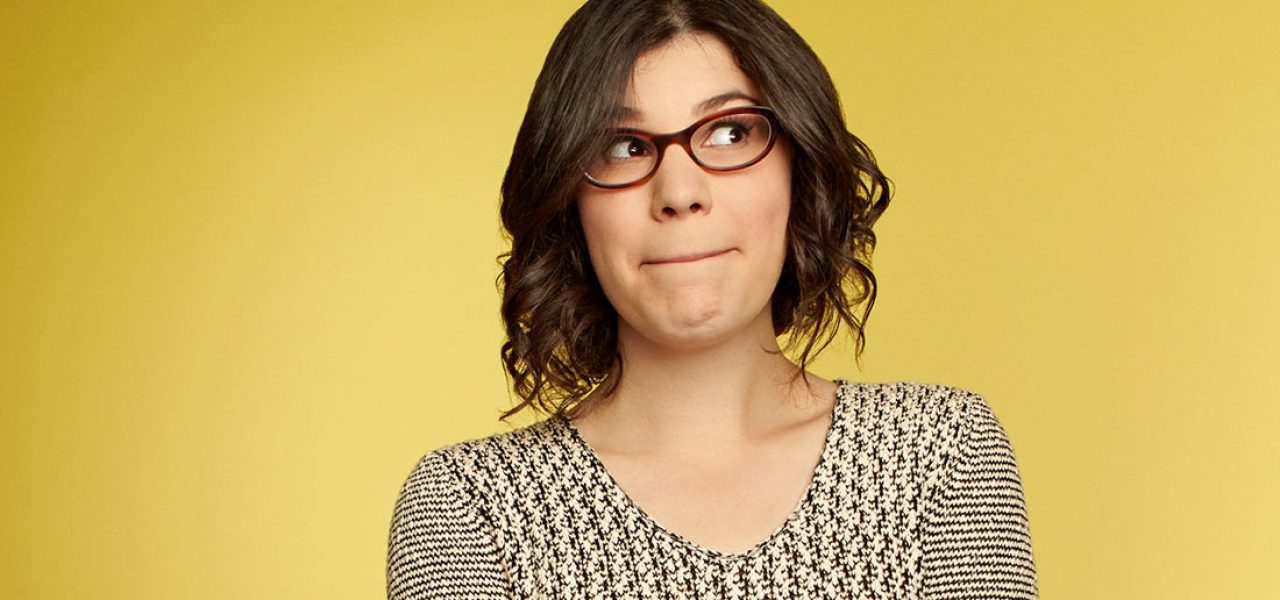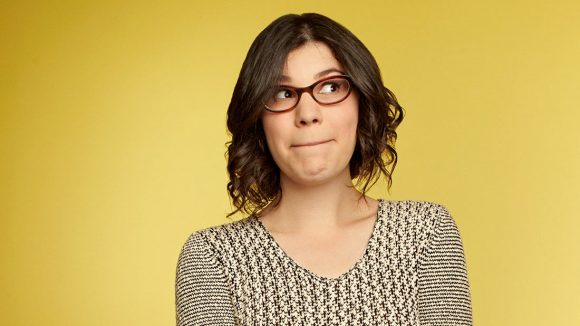

Comic-Con 2016: ‘Steven Universe’ Creator Rebecca Sugar Comes Out As Bisexual
San Diego Comic-Con always holds a few animation surprises, but this year’s biggest one also marks a historic moment for the American animation industry. Yesterday in a panel devoted to Steven Universe, an attendee asked about the show’s inclusion of LGBTQ themes, to which creator Rebecca Sugar answered that it’s based on her own experiences as a bisexual woman.
The extraordinary moment was captured on video below, beginning at the 46:20 mark:
Sugar’s admission drew applause from the audience. She seemed temporarily thrown off balance by her own statement, but after a few moments, she elaborated on the subject. “There’s an idea that these are themes that should not be shared with kids, but everyone shares stories about love and attraction with kids,” she said. “So many stories for kids are about love, and it really makes a difference to hear stories about how someone like you can be loved.”
“It’s very important to me that we speak to kids about consent, that we speak to kids about identity…” she continued, before admitting that there was far too much she wanted to say about the subject. “I want to feel like I exist, and I want everyone else who wants to feel that way to feel that way too.”
Steven Universe, currently in its third season on Cartoon Network, has frequently touched upon issues of gender, sexuality, and unconventional family structures in a kid-friendly context. Sugar has also addressed the issue of queer characters in animation before, though she had never applied her interest in the topic to her own life. In this video from a few months ago at MoCCA, she observed how love and sexuality are frequent topics in Disney animation, yet they are only presented from the perspective of heteronormative relations:
Although many of her fans had suspected that she was part of the LGBT community, there was an enthusiastic reaction upon her public statement yesterday. Here’s a small sampling of comments from Twitter:
Rebecca Sugar is my hero. She has done one of the most important and revolutionary things I can imagine anyone in kids media doing.
— deemcdonnell .biz (@deevseverything) July 23, 2016
Rebecca Sugar is the cartoon creator kids need.
— Brandinosaurus Rex (@madripoors) July 23, 2016
Just catching up on the SU Rebecca Sugar SDCC Panel. Happy Tears.
— Dorianne@Stugan (@damousey) July 23, 2016
rebecca sugar apparently publicly said that she was bisexual at sdcc so i am LIVING
— kiss that egg (@fearfuns) July 23, 2016
cries bc Rebecca Sugar takes LGBT+ rep super seriously, and like, same, t bh. that's a big part of why I write pic.twitter.com/RSero4StZV
— Hika (@Hika421) July 23, 2016
Warmest of thanks to Rebecca Sugar who is honestly making the world a little more bearable.
— ✨⭐Trungles⭐️✨ (@Trungles) July 23, 2016
Issues of sexuality and gender are often addressed in independent animation; at Annecy last month, the short He Who Has Two Souls by Fabrice Luang-Vija told a beautiful story about gender-bending in Inuit culture. Sugar though has taken it one step further and shown that it’s okay to be yourself and to express yourself in the commercial world, too.
The implications of a commercial animation creator being openly bisexual are significant to animation being taken more seriously as a storytelling medium. It pushes back against the conventional stereotype of the art form as a vehicle for simplistic and easily resolved fairy tales.
As a historian, I’m aware of major names throughout animation history (dating back to the Golden Age) who have been bi, but as far as I know, none ever chose to publicly disclose their orientation prior to Sugar. Without doubt, there would be different and more nuanced readings of earlier animated films if the public was aware of the sexual orientation of the directors who made the films.
Sugar has forged new ground, letting her audience know once and for all that her creative choices have been deliberate, and in the process, opening doors for other artists who want to use animation to tell personal stories in the same way that mainstream creators in other art forms do.


.png)